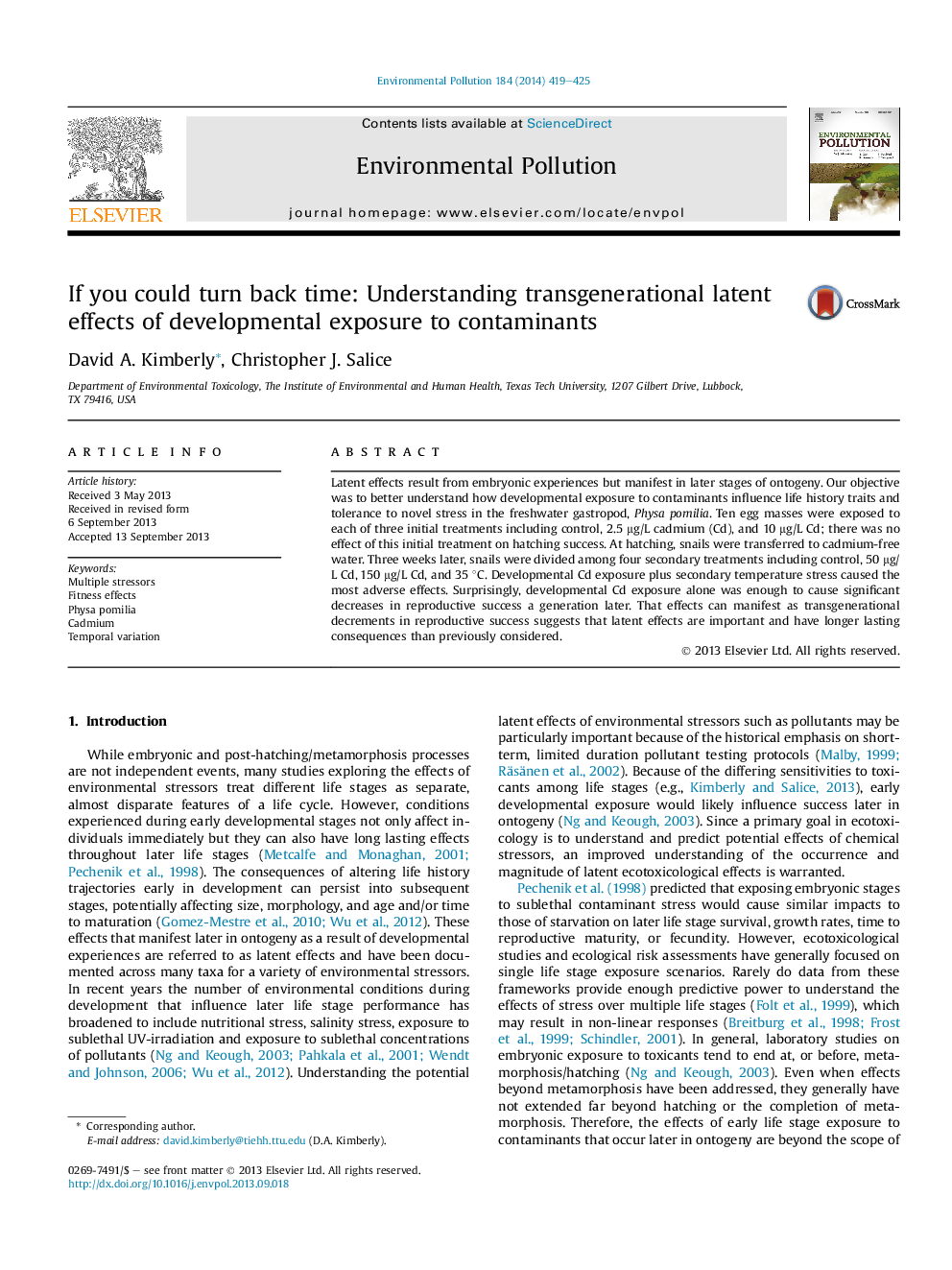| Article ID | Journal | Published Year | Pages | File Type |
|---|---|---|---|---|
| 6317501 | Environmental Pollution | 2014 | 7 Pages |
Abstract
Latent effects result from embryonic experiences but manifest in later stages of ontogeny. Our objective was to better understand how developmental exposure to contaminants influence life history traits and tolerance to novel stress in the freshwater gastropod, Physa pomilia. Ten egg masses were exposed to each of three initial treatments including control, 2.5 μg/L cadmium (Cd), and 10 μg/L Cd; there was no effect of this initial treatment on hatching success. At hatching, snails were transferred to cadmium-free water. Three weeks later, snails were divided among four secondary treatments including control, 50 μg/L Cd, 150 μg/L Cd, and 35 °C. Developmental Cd exposure plus secondary temperature stress caused the most adverse effects. Surprisingly, developmental Cd exposure alone was enough to cause significant decreases in reproductive success a generation later. That effects can manifest as transgenerational decrements in reproductive success suggests that latent effects are important and have longer lasting consequences than previously considered.
Related Topics
Life Sciences
Environmental Science
Environmental Chemistry
Authors
David A. Kimberly, Christopher J. Salice,
